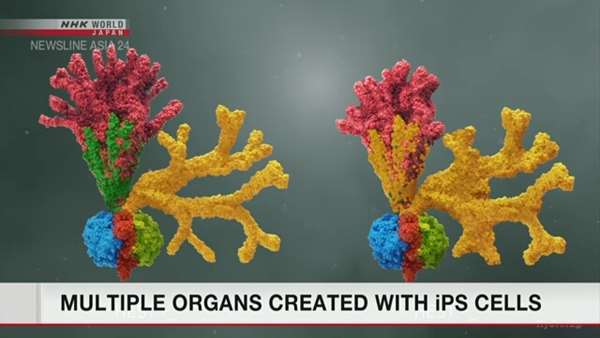Multiple organs produced at once with iPS cells
A Japanese research group has successfully produced multiple organs simultaneously, using human iPS cells, or induced pluripotent stem cells.
A Japanese research group has successfully produced multiple organs simultaneously, using human iPS cells, or induced pluripotent stem cells.
The group, led by Takanori Takebe, professor at Tokyo Medical and Dental University, published its findings in the British science magazine Nature on Wednesday.
Researchers first cultured iPS cells, which have the potential to develop into any kind of tissue, to the stage before they become digestive organs.
They then grouped together cells that develop into the upper part of the digestive tract with those that develop into the lower part, and cultured the combination.
The result was a simultaneous creation of a liver and pancreas, and a bile duct that connects them.
The organs together measure only about one centimeter, which is about the size of those of a one-month-old fetus.
Researchers say they were able to confirm some functions, such as a flow of liquid from the liver to other organs.
The organs that interact in a complicated way in the human body have never before been produced from human iPS cells simultaneously.
Researchers say that if they can culture blood vessels at the same time, the organs could be transplanted into the human body.
Takebe says there are still many challenges, but they hope to be ready for transplants within ten years.
Reference:https://www3.nhk.or.jp/nhkworld/en/news/20190926_26/





ارسال به دوستان